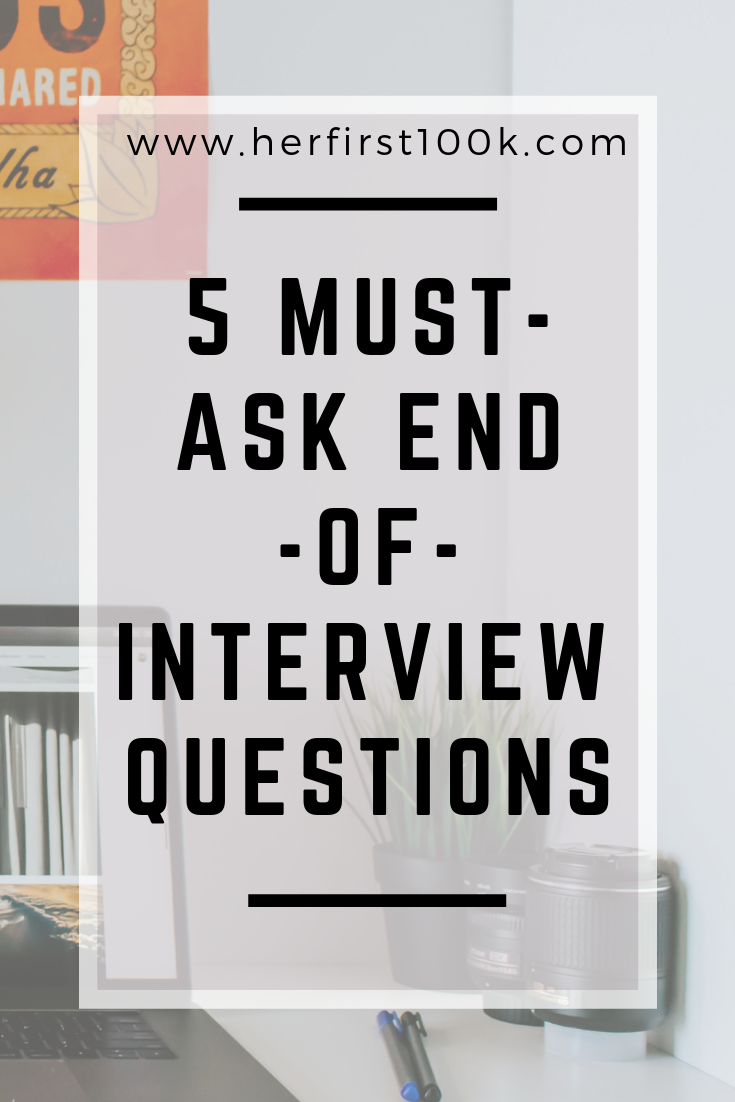The following article may contain affiliate links or sponsored content. This doesn’t cost you anything, and shopping or using our affiliate partners is a way to support our mission. I will never work with a brand or showcase a product that I don’t personally use or believe in.
Ask These Questions After Your Interview
Job interviews are daunting. There is no way around that. But God help you if you’ve ever answered, “No, I don’t have any questions” at the end of a job interview (in fact, it’s one of the things that could cost you a job.)
In their nervousness, applicants almost always forget that job interviews are just as much for them, as for the company they’ve applied to. You’re here to see if the job will be a good fit for you. It’s like shopping for anything: the salesperson is going to ask questions about you and your needs to see if the product makes sense for you. You should be doing the exact same thing (you’re not going to buy a car without asking about the MPG, Bluetooth, and the airbags, amirite?!)
In addition to giving you some needed details, asking questions also shows that you sincerely care about the position. It demonstrates you’ve prepared and prepped, in addition to highlighting that you’re grilling them too (you’re looking for the perfect company to bring your awesome skills to, and it makes you look more valuable.)
This list of questions is by no means complete or exhaustive, but will provide a great jumping-off point, no matter what position or company you’re looking at. Here are 5 Must-Ask-End of Interview questions that will not only give you a feel of the company culture and also let you stand out from the crowd.
1. How would you describe the company culture? What do you all do for fun together?
An oldie, but a goodie. Company culture has become increasingly important in choosing a job. You may not be absolutely in love with the industry or the scope of your work (and that’s a huge bummer), but if you love the people and the perks, it’s reason to stay. This two-part question shows you what to expect from office life, and if that attitude and camaraderie will exist in your personal life as well.
2. What is the performance and salary review process procedure?
This is a future-thinking question, and something you’re going to be so glad you asked. If your interviewer doesn’t seem to have an answer for this or looks nervous, that is a huge red flag; demonstrating that there is not a ton of upward mobility or raise potential. If they have an awesome answer for you (i.e. “Every six months”, or “After you’ve been here a year”), write it down. When (yep, I said WHEN) you get the job, you know what to expect and demand as you gain tenure — if they don’t give you a raise, you know to ask for it.
READ MORE: How to Land the Job (When You Don’t Meet the Requirements)
3. How do you measure success, particularly for this position?
Another future-thinking question that is super important. Discovering what “success” is to a company (is it making a lot of money? Producing good employees? Throwing a killer anniversary party?) will showcase their mission and values for the organization. It also helps you determine the milestones to hit as you progress in your position, giving you immediate goals and metrics for the year ahead. It provides depth of the position, to see what the day-to-day would truly be like in order to be “successful” at this particular organization.
4. How do you help your team grow professionally? What benefits do you offer for professional growth?
Every job (usually that first one especially) is going to challenge you. This is something you must demand and expect. In addition to the everyday challenges (the ones you see on your job description,) you should look for other growth and development opportunities. Will your employer pay for a LinkedIn premium account or for a professional society? Do they Lunch and Learn, have a library of helpful books, or encourage mentoring? All things to research and look out for.
5. Is there anything about myself or my qualifications that gives you pause? If so, I would love to address those concerns.
Yep, my heart leapt in my chest as I was typing it. This question is not for the faint of heart, but is truly the ultimate end-of-interview question. It requires immediate vulnerability with a practical stranger, but this will show grace and confidence (I can’t tell you how often people are taken aback (in a good way) when I ask this question.) If your interviewer answers nope, their brain immediately goes, “I have no qualms? I guess I don’t! S/he’d be the perfect fit!” If they do, it’s a perfect opportunity to address those and explain, before they become dark marks on an otherwise great interview. Maybe they misunderstood your answer to a question, or maybe they’re reading WAY too much into that employment gap. Now’s the time to set the record straight.
Need extra help? I’ve got you covered with my best-selling Job Interview Package that guides you through the interview process from creating the perfect resume to sending in your resignation letter.



